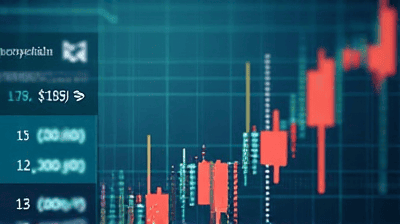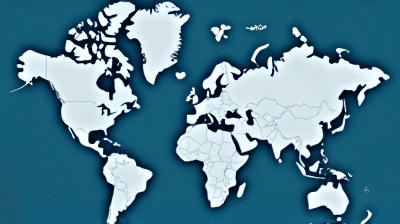
The foreign exchange market, commonly known as forex, is one of the most dynamic and liquid financial markets in the world. Unlike stock markets, which operate during specific hours, the forex market is open 24 hours a day, five days a week, allowing traders to react immediately to global events. Currency exchange rates are highly sensitive to a variety of global events, including geopolitical developments, economic indicators, natural disasters, and public health crises. Understanding the impact of these events on currency exchange rates is crucial for traders and investors alike.
Understanding Currency Exchange Rates
Basics of Currency Exchange
Currency exchange rates represent the value of one currency in terms of another. For instance, the exchange rate between the US dollar and the euro indicates how much one euro is worth in dollars. Exchange rates fluctuate due to supply and demand dynamics in the forex market, driven by a multitude of factors, including interest rates, inflation, political stability, and economic performance.
Types of Exchange Rate Regimes
Exchange rates can be categorized into several types:
- Floating exchange rates: These rates are determined by the market forces of supply and demand without direct government or central bank intervention.
- Fixed exchange rates: Also known as pegged rates, these are set and maintained by a government or central bank at a specific level against another currency.
- Managed floating rates: In this system, a currency's value is primarily determined by the market, but the central bank may intervene to stabilize or influence the exchange rate.
Global Events That Influence Currency Exchange Rates

1. Economic Indicators
Economic indicators are key statistics that provide insight into a country's economic performance. Traders closely monitor these indicators as they can have a substantial impact on currency values.
- Gross Domestic Product (GDP): GDP measures the total economic output of a country. Strong GDP growth typically leads to a stronger currency as it indicates a healthy economy, attracting foreign investment.
- Unemployment rates: High unemployment can signal economic distress, leading to a weaker currency. Conversely, a decrease in unemployment can boost investor confidence and strengthen the currency.
- Inflation rates: Inflation measures the rate at which prices for goods and services rise. Central banks may increase interest rates to combat high inflation, leading to currency appreciation as higher interest rates attract foreign investment.
2. Central Bank Policies
Central banks play a crucial role in influencing currency exchange rates through monetary policy decisions.
- Interest rates: When a central bank raises interest rates, it often strengthens the currency, as higher interest rates provide better returns on investments denominated in that currency. Conversely, lowering interest rates can lead to currency depreciation.
- Quantitative easing: This is a form of monetary policy where central banks inject money into the economy. This increase in the money supply can weaken the currency, as it may lead to inflation concerns among investors.
3. Political Stability and Events
Political stability is vital for currency strength. Events such as elections, policy changes, and geopolitical tensions can lead to currency fluctuations.
- Elections: Political uncertainty surrounding elections can lead to volatility in currency values. For example, unexpected election results may lead to market jitters, causing the currency of the affected country to depreciate.
- Government policies: Changes in government policies, such as taxation and regulation, can have a profound impact on the economy and subsequently the currency. For instance, pro-business policies may strengthen a currency, while restrictive regulations may weaken it.
4. Geopolitical Events
Geopolitical events can cause significant fluctuations in currency exchange rates.
- Natural disasters: Events such as earthquakes, hurricanes, and floods can disrupt economic activity and lead to a decline in currency value as investors reevaluate risks.
- Conflict and war: Geopolitical tensions, such as conflicts or wars, can lead to increased risk aversion among investors. Safe-haven currencies, such as the US dollar and Japanese yen, typically strengthen during such times, while the currencies of the affected countries may weaken.
5. Public Health Crises
The COVID-19 pandemic highlighted the impact of public health crises on global currency exchange rates.
- Market reactions: Health crises can lead to lockdowns, reduced economic activity, and increased government spending. These factors often lead to currency fluctuations as traders react to new information and shifting economic conditions.
- Government stimulus: In response to public health disasters, governments may implement stimulus packages that affect currency valuations. While stimulus can boost short-term economic activity, it may also raise concerns about inflation or debt sustainability in the long run.
Mechanisms Behind Currency Fluctuation
Understanding the mechanisms behind currency fluctuations is essential for analyzing the impact of global events.
Supply and Demand Dynamics
The supply and demand for a currency are the primary drivers of its exchange rate. Factors such as economic performance, interest rates, and political stability influence how much demand there is for a currency.
- Increased demand: If investors perceive a country as stable with a strong economy, demand for its currency will rise, leading to appreciation. This demand can stem from foreign investments, exports, or buying of securities denominated in that currency.
- Decreased demand: Conversely, negative events or perceptions can lead to decreased demand for a currency, resulting in depreciation. For example, political instability can prompt foreign investors to withdraw their capital, decreasing demand for the local currency.
Market Sentiment
Market sentiment plays a significant role in currency exchange rates. Traders and investors often react to news, events, and economic reports, influencing the market's collective perception of a currency's value.
- Herd behavior: In times of uncertainty, traders may fall prey to herd behavior, making decisions based on the actions of others rather than fundamentals. This can lead to rapid price movements and volatility.
- News headlines: News releases related to economic indicators or global events can trigger immediate reactions from traders, resulting in swift changes in currency values.
Strategies for Navigating Currency Fluctuations

Given the impact of global events on currency exchange rates, traders and investors can employ certain strategies to navigate this volatility.
1. Staying Informed
Keeping abreast of global events and economic indicators is crucial for forex traders. Regularly monitoring news outlets, economic calendars, and financial reports will help traders anticipate potential market movements and make informed decisions.
2. Technical and Fundamental Analysis
A combination of technical and fundamental analysis can provide valuable insights into currency trends.
- Technical analysis: This involves analyzing historical price data and market trends to identify potential price movements. Chart patterns, moving averages, and indicators can help traders predict future price movements.
- Fundamental analysis: Evaluating economic indicators, central bank policies, and geopolitical events will help traders understand the underlying factors driving currency fluctuations.
3. Risk Management
Implementing robust risk management strategies is essential in navigating the forex market.
- Using stop-loss orders: Setting stop-loss orders can help limit potential losses if a trade goes against the trader’s expectation.
- Position sizing: Adjusting position sizes based on market volatility and account size can help traders manage risk effectively and mitigate the impact of adverse market movements.
4. Adapting to Changing Conditions
Flexibility is key in the forex market. Traders should be prepared to adapt their strategies based on changing conditions brought about by global events.
- Reviewing positions: Regularly reviewing open positions in light of new information can help traders make timely decisions to cut losses or capitalize on opportunities.
- Reassessing strategies: Traders should be willing to modify their trading strategies in response to new developments, ensuring they remain relevant and effective.
Conclusion
The forex market is intricately linked to global events, with currency exchange rates often reflecting the consequences of economic indicators, political stability, geopolitical tensions, and public health crises. Understanding the impact of these events is crucial for traders and investors navigating this dynamic market.
As the global landscape continues to evolve, those engaged in forex trading must stay informed, employ effective analysis techniques, implement sound risk management strategies, and remain adaptable to rapidly changing conditions. The interconnected nature of the world means that being vigilant about global events can provide a competitive edge in the foreign exchange market.
In conclusion, whether you are a novice trader or an experienced investor, recognizing the significant impact of global events on currency exchange rates is essential for success in the forex market.
